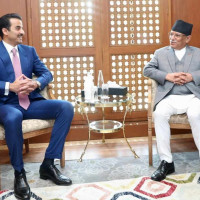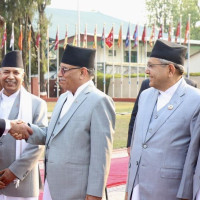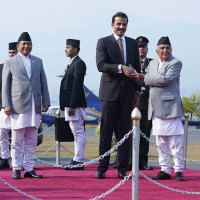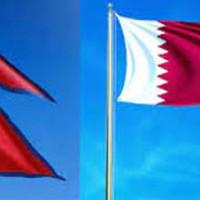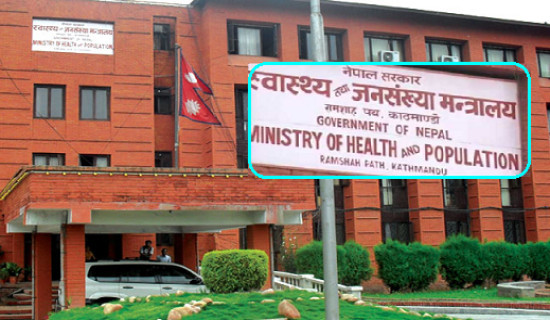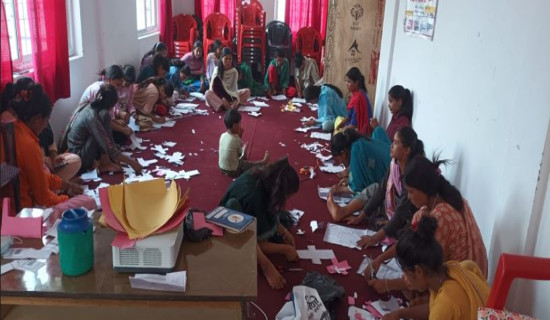- Wednesday, 24 April 2024
Pro-public Conduct Builds Trust On Republic
After the second people's movement, Nepal has been a Federal Democratic Republican state since May 28, 2008. As the system passes through 15 years, the nation is celebrating the Republic Day. The movement's younger fighters are differently analysing the period of the Republic of Nepal. Young political leaders like Pradeep Paudel, Thakur Gaire, Madhav Sapkota and Ram Kumari Jhakri were in the forefront during the second people's movement with hot blood. They talked with The Rising Nepal about the objectives of the republic system's adoption, its present scenario, and its future.
The foundation of the Federal Democratic Republican was a turning point in Nepali politics. During movements, we showed up with dreams and hope for citizens that bad practices would end after a revolution. With these expectations, they participated with high enthusiasm. So, the monarchy that represented feudalism was abolished peacefully.
After the success of the people's movement, an election was held for the first Constituent Assembly. People mandated to then CPN-Maoist. But the CA failed to write the constitution, which started to weaken trust among the parties. The election to the second CA was held, and the Nepali Congress emerged as the largest party. The constitution was promulgated, but without full agreement. It continued the debate over the constitution.
However, people were expecting good governance after the promulgation of the new constitution. But our republican system failed to maintain that spirit. Even people's expectations for corruption control and accountability were not fulfilled. That breeds frustration among people. They believe that Republican leaders taught but did not act.
To maintain public trust, political parties should come with corrections. And new parties too need to express their commitment for the best delivery of the present political system. It is good that competitive politics is in practise. But the old and new parties are competing with the same tendencies.
Now people are not eager to change the system, but the situation. If political leaders move forward with an agenda, service delivery to the people and effective government would regain the people's hope over the present system. For that, political parties should change their behaviour for people centric moves.
There was euphoria during the system change. We had revolutionary sense, excitement, and courage. However, after the establishment of the republican system, we turned into rulers. Revolutionary awareness was easy, but running a state was not. Our political system has changed without economic prosperity. As a result, people could not fulfill their aspirations and were frustrated.
Political parties that were united in the movement are not together now due to power games. The government's changing cycle has caused instability. After the Republican set up, no party has received the majority of votes in an election.
If we talk about the future of the republic, it is not as mentioned by the Rastriya Prajatantra Party. Federalism is still in its infancy. A short period of political exercise will not give a result, but we have to test it for the full term.
For the system to strengthen, the present ruling coalition should be intact for five years, and the government should work hard to regain the trust of the people. The government should forward socialism as enshrined in the constitution, incorporating its policies and programme. The government should maintain good governance and end people's frustration by creating jobs.
After the restoration of democracy in 2046 BS and promulgation of the 2047 costitution, there was hope for a constitutional monarchy and democratic governance. But, due to the move of the Palace, conflict in the country took place and the Royal Palace massacre happened. Then King Gynendra Shah breached the limitations of constitutional monarchy by restricting the freedom of political parties. It led to abolition of monarchy, which was accepted in 2046 and not eliminated due to love from political parties. These developments forced the country to move forward without the King. Student unions were running joint educational movements at that time. But our movements turned into republican movements due to the King's move. Our organisation chanted the slogan in favour of republic after the royal takeover.
After the King's move, the student unions, held an interaction in the Tri-Chandra Campus about the "end of the monarch." That kind of debate expanded across the country. The political parties also came out with their movement. Seven parties joined hands in protests. Later, the Seven Parties and then the Maoist Party inked an agreement.
The movement gained momentum, and the system had changed. The people became sovereign through the movement. During the movements, people high hopes that the political parties would change their situation. But, even after the establishment of the republic, the governments were not successful in changing people's situations.
Delivery was very poor, and after the Bhutanese refugee scam was exposed, our corruption level has been exposed.
Good governance is synonymous to democracy. But due to low development expenditures and a lack of good governance, people are frustrated. To strengthen the republic system and to end public frustration, all political parties, who were partners of movements, should keep commitment for good governance, delivery and development. If parties come up with these commitments, the relevance of the republic can be maintained.
The republican system is part of the Nepal’s political transformation. Democracy had adopted open economy, open access, and other development opportunities. Some people are speaking against Republican system in the name of people's frustration because of our failure to deliver to the people. Let's compare the changes we have now in construction of roads, foreign investment, education, awareness level of people, health facilities, gender equality, utility of drinking water, electricity, schools, etc. After the nation became a republic, Kamaiya became a lawmaker, Dalits were given opportunities, untouchability was abolished, and an inclusive system was implemented. Were these things possible without democratic system?
Ravi Lamichhane and Gynendra Shai, who are speaking against the present system, got a chance to give their views due to
the open society that was built by the republican system itself. If there was no rule of law, how was it possible JP Gupta was jailed and Bal Krishna Khand and others, are arrested on charge of corruption?
There may be mistakes made by leaders and parties, but we cannot blame the system. It is not rational. So, in the present system, we can make changes within it and need not worry about it.
The republican system is the result of the unitary system that we faced in 2017 BS. The republic is the best system of democracy; this kind of system has no place for clan and family. Common people's son or daughter can now the head of state, whether it is ceremonial or executive.
People govern the system. The constitution provisioned a parliamentary system; though some parties had inked a note of deference in favour of the executive president. We do have a defect in the parliamentary system; we adopted a mixed electoral system that does not allow a single party to secure a majority and form a strong government. Due to an unstable government, people do not get deliveries, which breeds frustration.
There may be questions raised over the republican system and federalism. But we have no option but to improve the system by improving our delivery system and services. The republican system has a future in the country.
(Dahal is a journalist at The Rising Nepal.)




